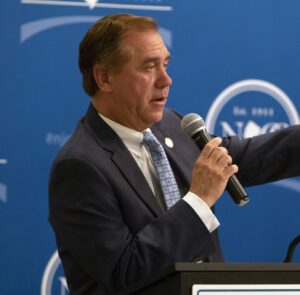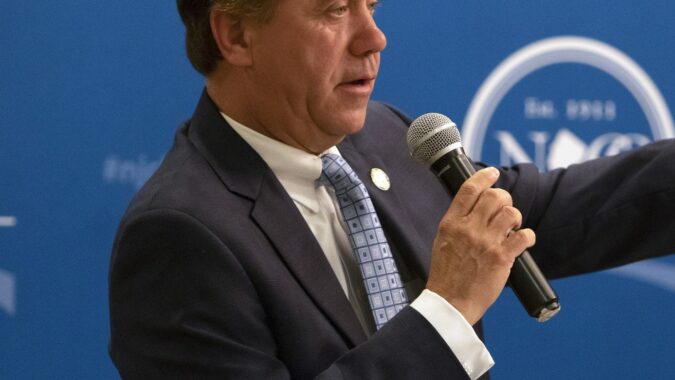
Even as New Jersey is still in the thick of an unprecedented health crisis, the new state budget looms on the legislative horizon. During a town hall-style webinar on Wednesday, Assembly Speaker Craig Coughlin discussed how he sees the process playing out, even though there is as much uncertainty with state revenues as there is with the pandemic itself.
Lawmakers have extended the end of FY 2020 from June 30 to Sept. 30, and the tax return filing deadline to July 15 from April 15. That means the state has to develop a spending plan for July 1 through Sept. 30 as well as for the new 2021 fiscal year, which will now be only nine months long, ending June 30, 2021.
“The real goal of doing that was to give ourselves the chance to assess in a more meaningful way with more real data the impact of this coronavirus,” Coughlin said.
But with state still in lockdown, that picture isn’t much clearer now than when the extension was enacted a month ago.
Some things are known, Coughlin said. Unemployment is rampant, with over a million people receiving unemployment insurance benefits, and small businesses are stretched to the point that they’re just trying to hang on. He also recognized that state revenues have plummeted, leaving the government without financial resources at a time when it needs them most.
Among the unknowns is how much longer the shutdown is going to remain in place. One hopeful sign is the rate of new infections appears to be slowing.
“It seems that the curve is flattening,” Coughlin said. “It seems that we are making real inroads as a result of the real discipline that people have followed….”
The Assembly Speaker added that he was hopeful New Jersey would get more funding from the federal government and that it would not come with the restrictions that were placed on funding for the state government included in the CARES Act.
Also on the agenda is a proposal from Gov. Phil Murphy to allow the state to borrow funds short term to help the state bridge the shortfall, although the state is not supposed to borrow for operating expenses. Coughlin said the idea merits consideration nonetheless.
Whatever happens, Coughlin said the state is going to have to keep expectations for spending in check.
“I think the three-month spending plan we put in place (to cover the extended fiscal year) needs to be tight, responsible,” Coughlin said. “I think we will see the same thing in crafting a nine month budget.”



